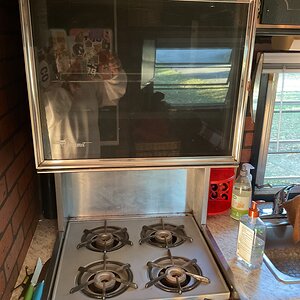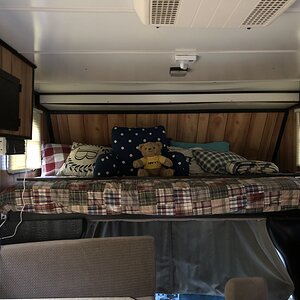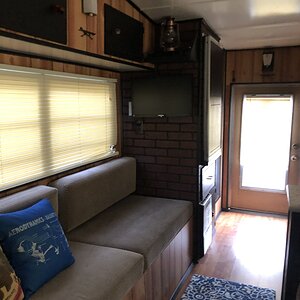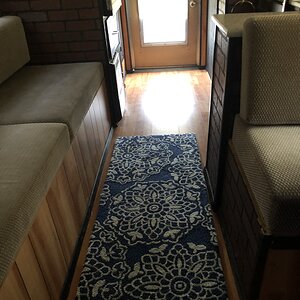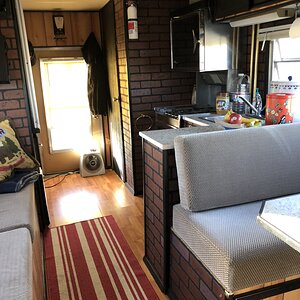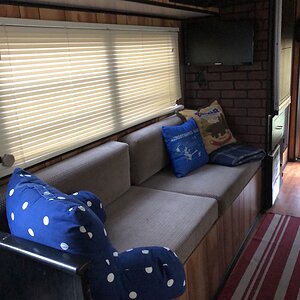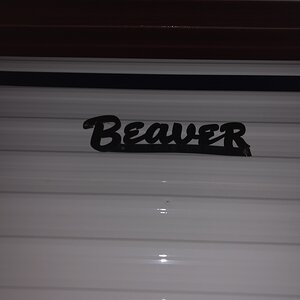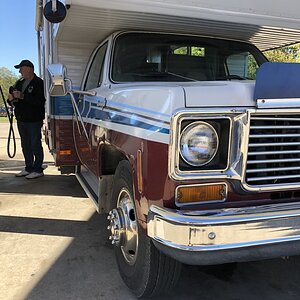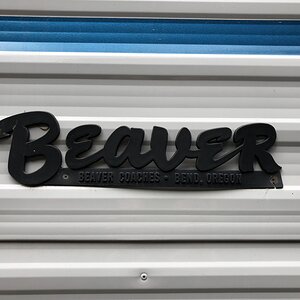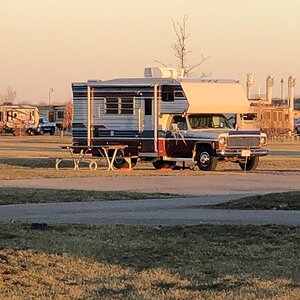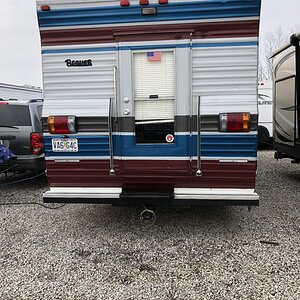- Joined
- Jul 27, 2019
- Messages
- 11,586
- Location
- Midlothian, VA
- RV Year
- 2017
- RV Make
- Newmar
- RV Model
- Ventana 4037
- RV Length
- 40' 10"
- Chassis
- Freightliner XCR
- Engine
- Cummins 400 HP
- TOW/TOAD
- 2017 Chevy Colorado
- Fulltimer
- No
The question came up in another thread recently but it's probably a good discussion for us to share for others coming here learning about the RV lifestyle and what it may cost to travel the open roads. Let's share our stories and for those that actually track it feel free to share any real numbers.
So you're interested in RV'ing, what will it cost?
The main expenses you'll have are fuel and campgrounds, I see no need to get into maintenance or repair costs, let's assume all is working as we hope.
The easy part: Fuel
Obviously fuel costs depend on what type of fuel, gas or diesel. I can only speak for the diesel and motorhome side, expect an average mpg of around 7, yes 7. You'll hear various numbers but there are so many variables such a whether the fill up is done at a high flow rate such as a truck stop or a lower fill rate of a local gas station. Foaming can be a problem thinking the tank is full when it could be closer to only 80-90% full. This throws off the mileage gonculations so I take with a grain of salt the numbers people share when they think they're getting something much better. I don't know how much diesel is affected by road conditions like a car such as hills, etc. But a typical fill up of a 100 gal tank which is more like a fuel stop of around 50 gals is going to hit your wallet at around 150-200 per fuel stop. There are some travels where you may hit the fuel stops every 1-2 days.
Campgrounds:
Think of paying for a hotel room each night even though you're going to a campground to park on a piece of land and plug in. This one is still the hardest one for me to digest that I own my own "home" on wheels and I'm still paying for a hotel room every night. "On average" I'd say a half decent campground is going to run you around $50/night. That's probably on the low side. I've seen as high as $160/night for owner type resorts where RV owners "own" their site and lease it out when they're not using it. Then there are state parks and other government type parks which can be as low as around $18/night and these are actually really nice parks with some of the nicest sites but some amenities may suffer such as you may not have a sewer connection and have to use the dump station, etc.
The duration of your stay can affect rates, longer stays such as weekly or monthly are typically discounted. For example, staying in Casa Grande, AZ for monthly comes out to around $33/night but you will have to pay for the electricity based on usage and it can be around $150-200/month I believe. Overall it's still an affordable stay.
Summary:
If you do the math such as $50 x 30 nights and then add gas, depending on if you're moving frequently or staying put, this can change quite a bit, you can derive basic costs of RVing. People RV differently. Some are fulltimers, living in their RV without owning a home to go back to, some like me are "most timers" that do around 150 days a year, some are weekenders that have fulltime jobs and can't get away as much as they may want.
That's my story, let's hear from others to share your lessons on what it costs to RV for the newcomers seeking this great lifestyle.
So you're interested in RV'ing, what will it cost?
The main expenses you'll have are fuel and campgrounds, I see no need to get into maintenance or repair costs, let's assume all is working as we hope.
The easy part: Fuel
Obviously fuel costs depend on what type of fuel, gas or diesel. I can only speak for the diesel and motorhome side, expect an average mpg of around 7, yes 7. You'll hear various numbers but there are so many variables such a whether the fill up is done at a high flow rate such as a truck stop or a lower fill rate of a local gas station. Foaming can be a problem thinking the tank is full when it could be closer to only 80-90% full. This throws off the mileage gonculations so I take with a grain of salt the numbers people share when they think they're getting something much better. I don't know how much diesel is affected by road conditions like a car such as hills, etc. But a typical fill up of a 100 gal tank which is more like a fuel stop of around 50 gals is going to hit your wallet at around 150-200 per fuel stop. There are some travels where you may hit the fuel stops every 1-2 days.
Campgrounds:
Think of paying for a hotel room each night even though you're going to a campground to park on a piece of land and plug in. This one is still the hardest one for me to digest that I own my own "home" on wheels and I'm still paying for a hotel room every night. "On average" I'd say a half decent campground is going to run you around $50/night. That's probably on the low side. I've seen as high as $160/night for owner type resorts where RV owners "own" their site and lease it out when they're not using it. Then there are state parks and other government type parks which can be as low as around $18/night and these are actually really nice parks with some of the nicest sites but some amenities may suffer such as you may not have a sewer connection and have to use the dump station, etc.
The duration of your stay can affect rates, longer stays such as weekly or monthly are typically discounted. For example, staying in Casa Grande, AZ for monthly comes out to around $33/night but you will have to pay for the electricity based on usage and it can be around $150-200/month I believe. Overall it's still an affordable stay.
Summary:
If you do the math such as $50 x 30 nights and then add gas, depending on if you're moving frequently or staying put, this can change quite a bit, you can derive basic costs of RVing. People RV differently. Some are fulltimers, living in their RV without owning a home to go back to, some like me are "most timers" that do around 150 days a year, some are weekenders that have fulltime jobs and can't get away as much as they may want.
That's my story, let's hear from others to share your lessons on what it costs to RV for the newcomers seeking this great lifestyle.

